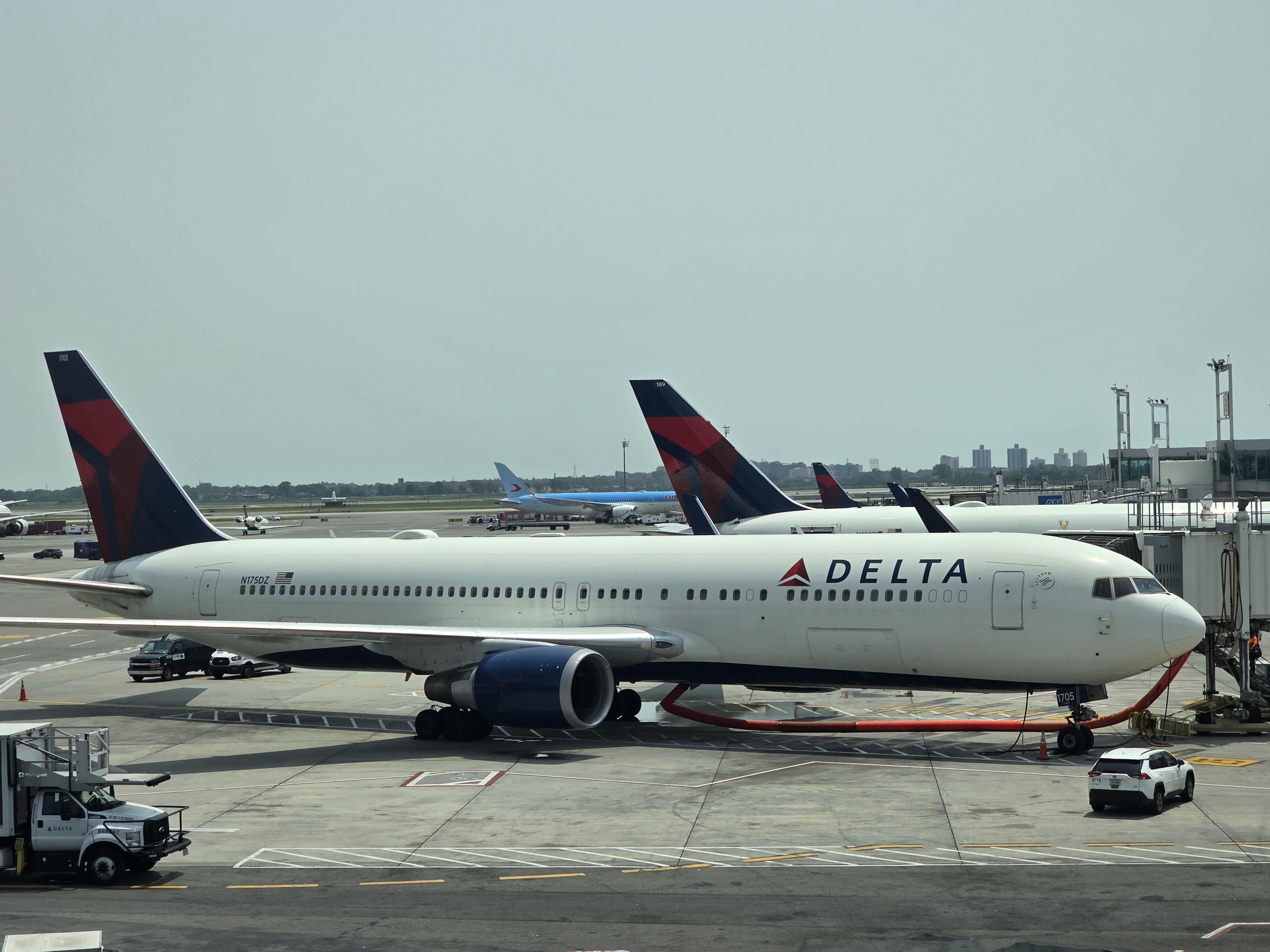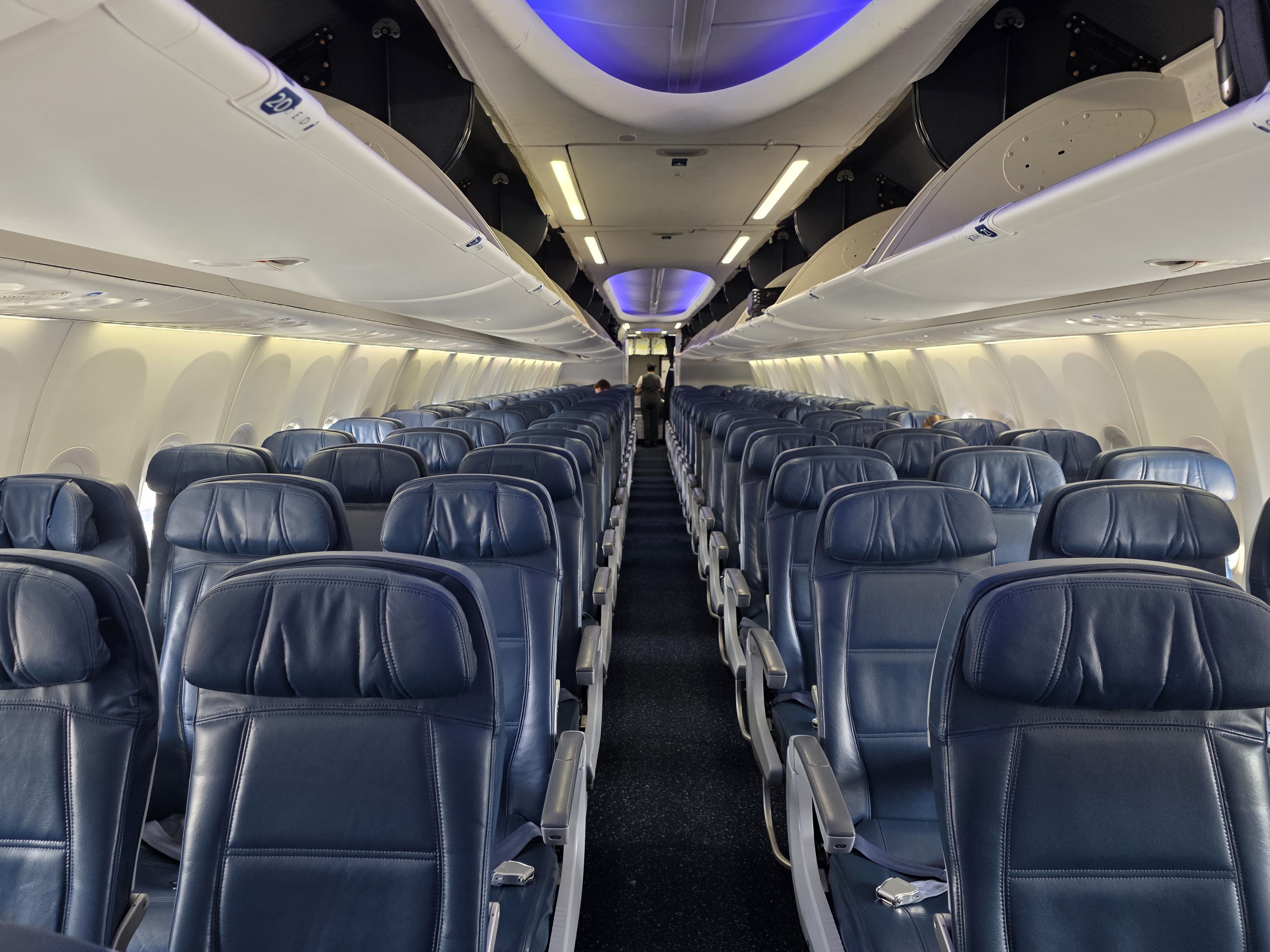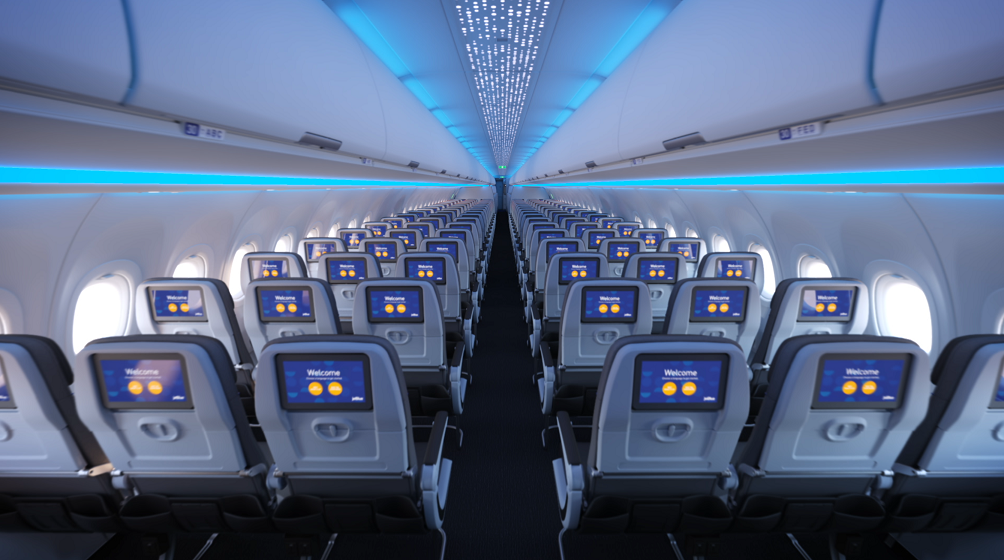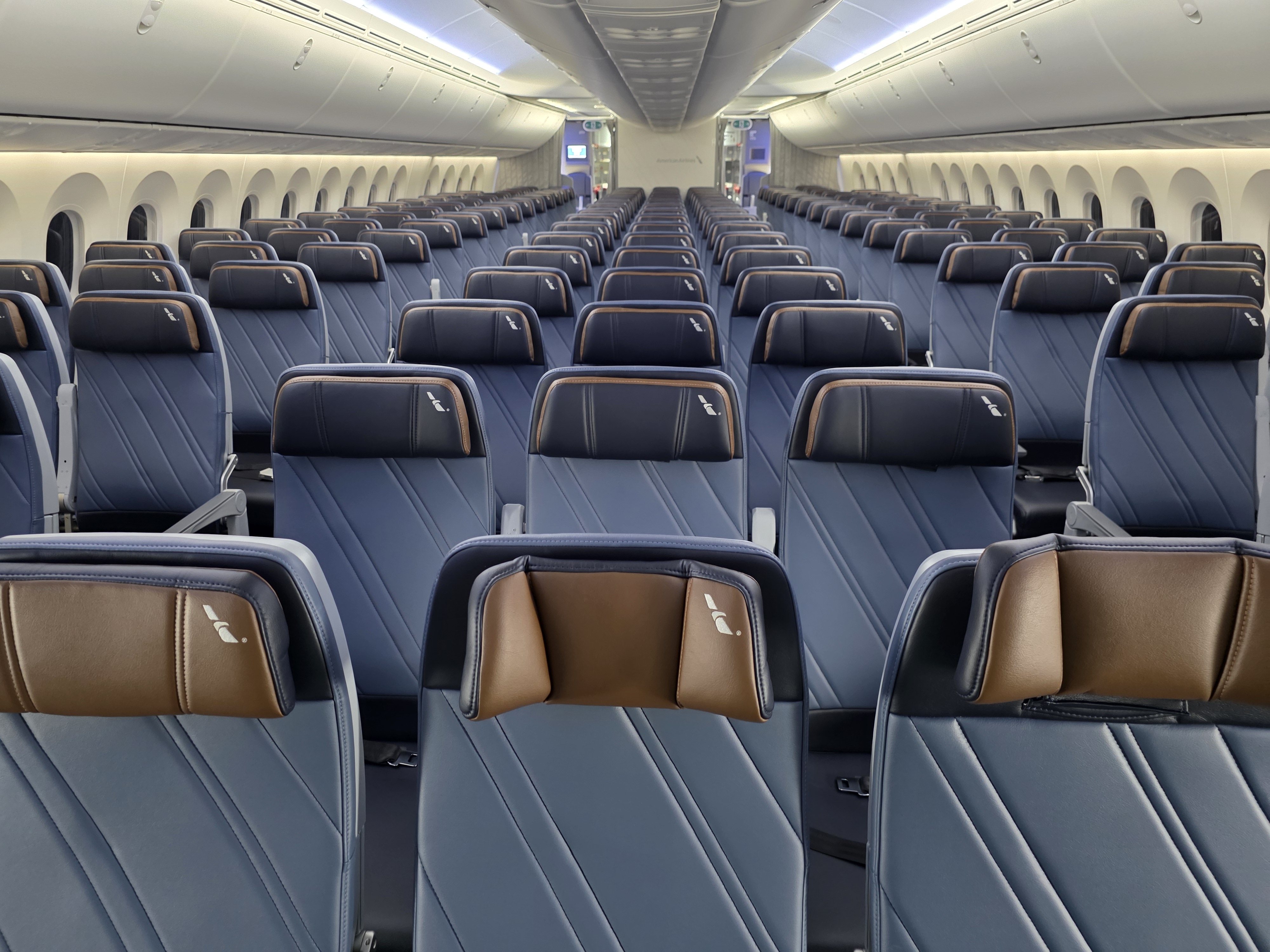Delta Air Lines says that they are increasingly turning ticket pricing over to AI and that by year-end, 20% of their fares will be managed by AI. They want to offer you a price that is the most you are willing to pay. They want to offer discounts only to customers that won’t pay a higher price.

Delta’s President Glen Hauenstein sees this as “a full re-engineering of how we price, and how we will be pricing in the future” – working to “get inside the mind of our consumer and present them something that is relevant to them, at the right time, at the right price.” The current pilot is expected to last 18-24 months before taking over completely if successful. And so far they think it is successful. It’s managing 3% of domestic fares today, and “we like what we see. We like it a lot.”
- Delta is the first major airline to speak so publicly about its use of AI pricing, to tout it for its potential upside at its Investor Day back in November and to offer concrete metrics around its use in its recent earnings call.
- However, the company that Delta is working with on this – Fetcherr – lists several airlines as clients including Azul, Virgin Atlantic (49% owned by Delta), Westjet (15% owned by Delta) and Viva Aerobus. Azul was actually first to acknowledge it publicly in 2022.
- Fetcherr isn’t the only one in this space. JetBlue partnerd with FLYR. Virgin Atlantic did, too and reported a 10% increase in seat fees priced dynamically. flydubai is using PROS and Lufthansa announced a partnership with them as well.

I actually think that this may mean lower prices, rather than higher prices and agreeing to AI pricing could even become a requirement of airline elite status.
The goal of any pricing strategy is to grow net revenue. That could mean charging a customer more. But if they started quoting higher prices, what would customers do?
- Just buy from an online travel agency where they’re anonyous
- Browse the Delta website in incognito mode or with a VPN
- Buy tickets from a different airline

If an airline wanted to force you into their pricing ecosystem they might start requiring direct,logged in purchases as a requirement for elite status (or booking through a known entity like a corporate travel portal). Some consumers would defect to another airline. We don’t know how many, or what airlines might remain AI-free in their pricing and for how long? I suspect not many and not long!
The way airlines generate a lot of their incremental revenue, though, isn’t just to figure out whom they can charge more to – even their highest yield customers are often attracted by low fares (corporate discounts) – it’s to figure out how to charge less to new customers without offering those same low prices to current customers who are buying tickets anyway.
- Airlines want to charge high fares to price-insensitive business travelers
- And they want to charge low fares to attract price-sensitive leisure travelers, to the extent they have empty seats to fill (since those fares are almost all incremental profit)
- But they don’t want the low fare offered to a leisure traveler to be available to that business customer who would have bought at a higher price.

The trick is to figure out whom to offer the lowest fares to! And AI can help them offer more low fares to more people without cannibalizing high fare revenue.
Personalized pricing has been an airline goal for the past decade and a half, and one of the ideas behind ‘new distribution capability’ (“NDC”) even apart from AI – the ultimate in price discrimination that used to be accomplished via Saturday stays and 14- or 21- day advance purchase requirements to segment business travelers (who buy last minute and don’t stay away the weekend as much).
This is now accomplished with basic economy (meant to offer low fares to price-sensitive leisure travelers) and even offering the lowest fares only when more than one passenger is on a reservation (because business travelers using book on their own).

Some states are pursuing laws banning or requiring disclosure of personalized pricing, but airlines may be uniquely positioned to pursue this because the Airline Deregulation Act expressly preempts state regulation of airfares. It might require federal law (or DOT regulation, if the agency found personalized pricing to be a deceptive practice) to put any curbs in place.
Airfares remain a highly competitive space, where long-term inflation adjusted prices have fallen. If one airline is charging a higher price than another, consumers will quickly shift business to the one that’s cheaper unless other product elements make that higher price worthwhile to them. There’s more room to use AI to offer new discounts than just to raise price.


Airlines have employed hoards of operations research grauates for 40+ year so it is had to see what is new here.
@L3 — There’s a difference between ‘hoards’ of human beings manually analyzing (and implementing software) to determine prices, verses and omnipresent, dynamic artificial intelligence that is far superior at micro-targeting each and every individual consumer; but, hey, Gary says it’s good for us, so nothing to see here… Also, I guess those ‘hoards’ are now gonna be unemployed. Uh oh.
thank you for the good article and perspective, Gary.
The assumption that AI is always damaging is simply not accurate.
As I noted, AI can help drive incremental purchases even to elites such as considering an extra trip which the elite is paying out of their own pocket rather than corporate or business travel which is how they got elite status.
AI has the ability to help shift demand which could increase revenue; people that are willing to move from a peak of peak flight might be rewarded w/ a lower fare while the airline can sell that peak of peak flight to someone that cannot.
It is helpful to see where other carriers are w/ other providers.
and the US as a whole is moving towards banning state laws on AI because it simply would destroy interstate commerce. The US needs a clear strategy but assuming everything is harmful isn’t going to be it.
AI-driven airline pricing raises serious concerns about transparency, fairness, and potential data-driven discrimination. If airlines fail to disclose that AI is driving upsells or that search activity influences fares, it could be “deceptive,” especially if not clearly stated at point of sale. The FTC should focus on ensuring that consumers clearly understand when and how personalized pricing is being applied, carefully audit airline AI systems to detect hidden bias, and monitor for anti-competitive practices that could limit consumer choice. Innovation must always be balanced with necessary consumer protections, and this can be done without stifling dynamic pricing entirely.
@Tim Dunn — If you enjoy analyzing the aviation industry as a hobbyist, all is fine; however, the real concern here is that management (and realistically, they are mere mercenaries for the investor, capital class) will so heavily rely on these half-baked over-hyped tools that they do mass layoffs, especially of corporate types, where the human touch and their real-world experience still matters. Usually, I’d be focused on bottom up, but the mid-level folks are gonna get screwed here. AI harms white collar, not just blue collar, even if it means more profits for the top, as always.
And on the consumer side, @Mike Hunt is correct to be concerned about the impact on there, too. However, like the warnings in the EU when visiting a website, most folks will simply ignore the disclaimers and still get caught up in the ‘game’ even if they were ‘warned.’
Any way we slice this, it’s a balancing act, and currently, the workers and consumers continue to lose to the super wealthy, who continue to hoard.
How would you feel if supermarkets used individualized pricing, and your pound of hamburger was more expensive than the next person’s?
@1990 In today’s popular vernacular…”yawn”
I can’t wait until AI is employed to determine status threshold levels.
An idea Tim Dunn and Delta could fully endorse…
*personalized status threshold levels
Fixed it
@One Trippe — Noted. *burp*
“ Some states are pursuing laws banning or requiring disclosure of personalized pricing, but airlines may be uniquely positioned to pursue this because the Airline Deregulation Act expressly preempts state regulation of airfares. It might require federal law (or DOT regulation, if the agency found personalized pricing to be a deceptive practice) to put any curbs in place.”
No, requiring a company to tell you what they’re doing in the case of disclosure is not telling that company what they can or cannot do.
Either way, this is bad for consumers and don’t let anybody sell you on a bill of goods that says otherwise. There is no universe where the airlines are not going to milk you for every dollar they can. Just because they’re also going to milk other types of passengers as well doesn’t change that.
@Christian — Of course it’s bad for both consumers and labor. Great for capital. Like, the already-wealthy are gonna win big on this nonsense. Quick! Look over there! Illegals! Culture war! All the rest of us are going to get is distractions from their further consolidation of power and resources.
In other words… “yawn”
Thank you Gary. This is pretty much what I predicted the first time you mentioned this pricing strategy. It’s just a more efficient way to meet the market where it is. I think this is going to result in lower prices in a lot of cases, particularly for premium seats, and fewer free upgrades because there will be fewer empty seats.
@Don I’ve always been baffled by this perspective. Why do you care how much I pay for a pound of hamburger? The only thing you should care about is how much you pay for a pound of hamburger. The butcher tells you the price, you decide if it’s worth it to you. What the guy in front of you paid or what the guy behind you is going to pay should be a little relevance other than as a negotiating tactic.
@1990 – @Gary asserts the opposite so I’d say it’s a valid counterpoint.
@Christian — Yeah, obviously, I remain skeptical. Gary attempts the ‘lipstick on a pig’ thing here (as he has with the CSR changes, which is fine; it’s his blog, and there are ‘possible’ upsides, but you’d have to game things right, and most folks just won’t). So, I respect his (and anyone’s) attempts, but generally think this ‘spin’ isn’t going to play out in our favor (as passengers, frequent flyers, hotel guests, rental car users, etc.) in this industry and all industries. Ultimately, I fear most people are going to be upset, blame the wrong people, and the social contract falls apart even further. Ideally, what follows is something better, but it’ll probably just be worse; some sort of corporate feudalism, if we aren’t already there anyway.
This just clarifies that most carriers (including “premium” Delta) aren’t really in the consumer service business. Their first instinct for AI is how to grind more out of customers instead of how to use it to better serve customers most efficiently, which improves loyalty and customer LTV.
For example, AI could account for my 3 1/2 hour wait on the tarmac yesterday and put me ahead of other Diamond/Million Milers on the upgrade list today. Or it would model that the 4,000 miles offered to me yesterday for the service interruption is meaningless when my balance of Sky Pesos is over 2 million, but 10,000 would maybe get noticed. In both scenarios, I feel better about Delta, I’m more likely to fly them, and it costs Delta zero.
But instead, I need to use a VPN to buy a friggin’ ticket, so I don’t get screwed.
Yeah, I always “liked” it when the airline (any airline) website would quote you a price, you pass on it and continue to shop around to other airline websites. After a few minutes you go back to the original airline website and the same ticket(s) for the same flight are 20-25% (or more) higher. Maybe, hopefully, AI won’t be pulling that kind of BS Con-Job.
@@Flip — On the VPN, follow @Gene’s advice and book your flights as a Romanian! How’s the weather in Bucharest?
You mean people will pay different prices for a seat on a particular flight? I fail to see how that’s any different than what’s happening right now.
How naïve: airlines are spending millions to reduce their revenue (i.e. lowering prices). Lol.
How can you market yourself as an “expert”?
@Mary — Gary clearly states he’s a ‘thought leader’… or is it ‘thot’ leader? Bah!
@Mike P — So, what’s the solution, you know, from the perspective of an anarcho-capitalist libertarian, such as yourself? Like, what would 95-year-old (uncle) Tom Sowell say? I’d imagine, he’d promote whatever the ‘free market’ determines, societal safeguards be ‘darned.’
So, the idea is that airlines are going to spend tons of money on AI so that customers can **spend less**?
I seriously don’t think so. On average, people will pay more. And if you are a loyal Delta flyer who pays more to fly Delta, they will charge you even more — they are literally telling you that.
I’ll take them at their word.
At the end of the day it’s just Premium Greed from the ticket Terrorists and Delta Overlords trying to fill their pockets.
Gary – I appreciate the optimistic take, but this doesn’t pass the smell test. You’re essentially arguing that airlines will spend millions on AI systems to make less money, which contradicts everything Delta’s executives are saying.
When Hauenstein says they want to charge “the most you are willing to pay” and Fetcherr talks about “manipulating the market for more profit,” taking them at face value seems more realistic than hoping they’ll accidentally become less profitable.
The competitive pressure argument falls apart when you consider: (1) the industry is dominated by 4 carriers, (2) if they all use similar AI systems we get algorithmic coordination, and (3) many routes have limited competition anyway.
Look at how personalized pricing has played out elsewhere – Uber surge pricing, online retail discrimination, hotel revenue management. It consistently trends toward extracting more from customers, not less.
The math is simple: if some people get discounts but overall revenue increases (which is the stated goal), then most people are paying more to subsidize those discounts AND generate extra profit.
Would we celebrate if grocery stores used AI to charge each person a different price for milk based on their income and desperation level? This is the same thing with a different product.
@Flip – Well said. Couldn’t agree more.
Holy shee..it, the number of people who are ignorant of economics continues to amaze me.
AI has lost meaning as a term. Companies have been using some form of AI in pricing for years. On the other hand, companies have been hesitant to use generative AI to model individual behavior and price to the individual. And rightly so. While sometimes it works, sometimes it really screws up. And a screw up on pricing in a narrow-margin business loses easier customers or money, massively. Besides, these models have inherent biases that will only become evident when they’re a liability: imagine if, last week, you were running an airline using “powered by Grok” pricing; how would you react to the widely-publicized anti-semitic comments by the AI that you could correlate behaviors to last names? How much are you going to pay to settle the class before discovery?
@Mike P — That didn’t sound like a ‘solution’ to me, bud. Got any quotes for us? Twain?
@Bubba — For real. The term “AI” often generates more hype than simply saying “software.” I suspect this is all to attract capital or to distract and enable quick cost-saving measures like layoffs to boost quarterly earnings. This reminds me of past buzzwords such as “FinTech,” the “app for everything” trend, the dot-com bubble, and even the rise of PCs, all real things, yet significantly hyped to serve similar financial ends, often with negative long-term consequences from losing experienced folks along the way. There is a human cost to all of this that shouldn’t be overlooked.
Because there’s no “solution” needed, are you truly this obtuse? Of course, you fall into the group that has little understanding of economics, so no one should be surprised that you don’t “get it”.
@Mike P — Ah, there it is. The ‘anarcho’ part of the anarcho-capitalist libertarian. “There are no solutions!” Yes, let almighty capital rape, pillage, and plunder, unabated. Government… regulation… unions… bad. *waving Gadsden flag unironically* (as most of us do very much get ‘tread’ on by that approach). Anyway, how difficult it must be for you to be the only one who ‘knows’ while the rest of us are so… ‘obtuse.’ Oh, the burden you carry.
Speaking of current events, in addition to the recent Iran ‘stuff,’ did you see that the neocons appear to be winning, yet again, and we (the USA) are sending munitions to Ukraine again? And here I thought that your isolationist buddies (Vance, etc.) would help their boy Putin by ‘staying outta it,’ but it sure looks like they finally realized that appeasement doesn’t work. (No, I haven’t forgotten your earlier comments in the separate post following Russia’s shooting at that Azerbaijan civilian aircraft in late December 2024…)
I still think your positions weaken our country and its people; your ‘hot takes’ seem by-design. Sow distrust. Distract. Destroy from within. So, as with the pro-CCP folks (@Un, etc.), I’m onto you.
I use Google flights for 99% of my airfare purchases. Not sure how AI would be able to target me when I use different browsers, ip addresses, etc. Interesting no doubt though
@Baron — Same here. It’s the best starting point. I’ve added PointsPath to see what the various points vs. cash price is like. However, sometimes you need to dive deeper, go to each proprietary site, login, see discounts for United card members or the Delta Reserve 15% off points redemptions; likewise, Amex Travel Platinum discount for international business class can be a ‘deal,’ too. How AI could be implemented by either Google or any of these companies would be to aggregate all the interactions and purchase history (and possibly your personal banking, credit, and all other details about your life) to basically encourage you to spend more than you should, thus leading to more profits for these companies. Pretty sure Google gets a small ‘cut’ or ‘kickback’ for bringing traffic to wherever you ultimately book, even it’s pennies each time, it adds up.
This sounds like a discrimination suit waiting to happen.